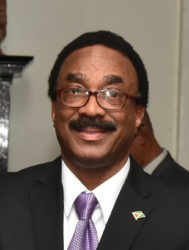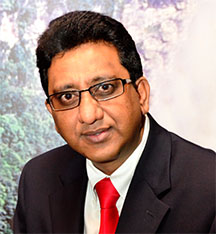The Caribbean Court of Justice (CCJ) will tomorrow begin hearing the Government of Guyana’s appeal of the US$2.2 million judgment that was awarded in favour of Trinidad road construction company Dipcon as payments for works done under the former administration.
This is according to the “Schedule of sittings” posted on the CCJ’s website.
It states that the court on October 30, at 10 am in the Seat of the Court on the 1st floor, will hear the case involving the Attorney General (AG) of Guyana (applicant/appellant) and Dipcon Engineering (respondent).

In early February, 2009, Dipcon took the then government to court, seeking to recover sums it said it was owed along with all other costs associated with the road construction and infrastructural works done in the Mahaica/Rosignol area.
On October 21, 2015, Justice Rishi Persaud passed judgment in favour of Dipcon. Justice Persaud had ordered the government to pay the company US$665,032.17 as payment for road building and construction works.
Justice Persaud also ordered that the government pay Dipcon the sum of US$1,563,368.50 for increased costs it incurred for those works, together with interest on both amounts, at a rate of 6% per annum from February 10th 2009, to October 21st, 2015 and thereafter at the rate of 4% per annum until fully paid.
Additionally, Justice Persaud ordered that the government pay the engineering company, $1.2 million in costs. Justice Persaud also ordered a stay of execution for six weeks.

In September of 2015, a month before Justice Persaud’s judgment, former President Bharrat Jagdeo had stated that he had offered help to President David Granger over ongoing court cases to mitigate any liability to the state.
“… We don’t want the government to lose those …cases based on bad legal representations because it will cost the treasury billions of dollars and us as taxpayers, people of this country,” he said of his first meeting with President Granger and members of his cabinet. From all indications there no progress in this regard after that meeting.
In March this year, AG Basil Williams SC, sought leave from the Guyana Court of Appeal to approach the CCJ to continue the state’s fight against the judgement. The leave was subsequently granted.
An affidavit filed in support of Williams’ application to the Guyana Court of Appeal stated that he was unaware of the award against the state within the time frame permitted for an appeal.
Senior Legal Adviser at the AG’s Chambers Judy Stuart, in her affidavit in support of Williams’ application, had said that Williams first became aware of the judgment in January, 2016, when an attorney laid over a court order for the payment of $400 million with the Ministry of Finance. She further swore that the Minister of Finance did not furnish the AG with details on the judgment, the name of the attorney of law or the parties to the litigation that had generated the court order.
She said that she has been advised by her attorneys at law that the application to the Court of Appeal for leave to appeal to the CCJ ought to be granted in light of the grave issues of public interest. “These issues include the economic effect of this judgment on the Cooperative Republic of Guyana and more specifically in relation to the State’s abilities to engage international donor agencies,” Stuart stated.
She added that she was advised that the AG assumed office in May, 2015 and as a consequence required some time to determine what matters were in Chambers and their status.
She said that Williams will contend that as a result of the file being assigned to private counsel and the change in personnel in the post of Attorney General “there was unavoidable delay in making the application for extension of time.”
Williams’ predecessor Anil Nandlall, however, had claimed that there was more than enough time to challenge the judgement. Nandlall denied blame for the AG’s failure to file an appeal in time and said that if government loses its fight to challenge the award, Williams is solely to blame.





